Abstract
Four schizophrenic patients with paranoid and grandiose delusions who had been hospitalized for an average of 17 yr were exposed to social reinforcement contingencies in a multiple baseline design. During the baseline period, each patient was interviewed for four 10-min sessions each day. The elapsed time from onset of conversation to onset of delusional talk was recorded. At the end of each day, the patients engaged in a 30-min informal chat with a nurse-therapist while relaxing with coffee, snacks, and cigarettes. The intervention introduced two contingencies: (1) The 10-min interviews were terminated as soon as the patient began talking delusionally; (2) The patients earned time for their evening chat by talking rationally during their daytime interviews. Increases of from 200 to 600% in the amount of rational talk exhibited during the interviews occurred as the contingencies were introduced for each patient sequentially over time. These increases were maintained in three patients when the amount of reinforcement was halved, but declined when the patients were confronted directly with their delusional ideas. A modest amount of generalization occurred from the day-time interviews to the evening chats but did not extend to the behavior of the patients on the ward.
Full text
PDF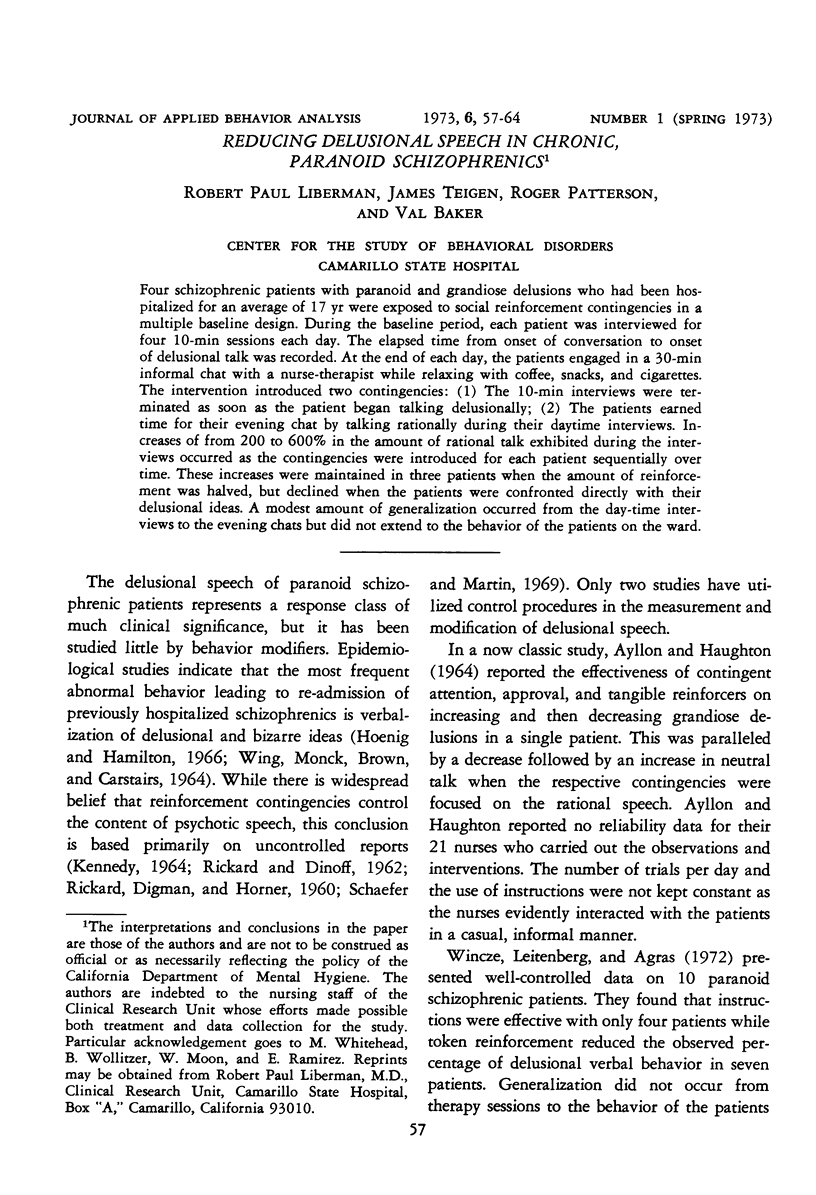
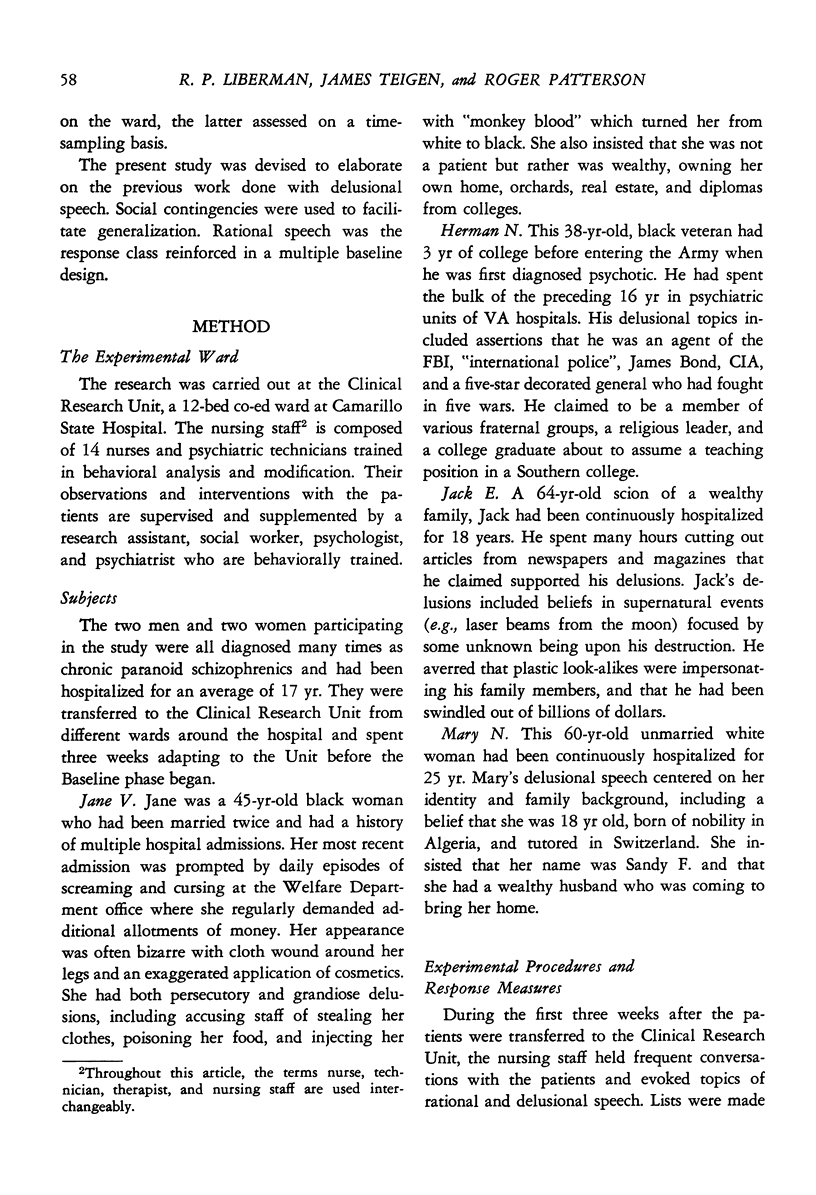
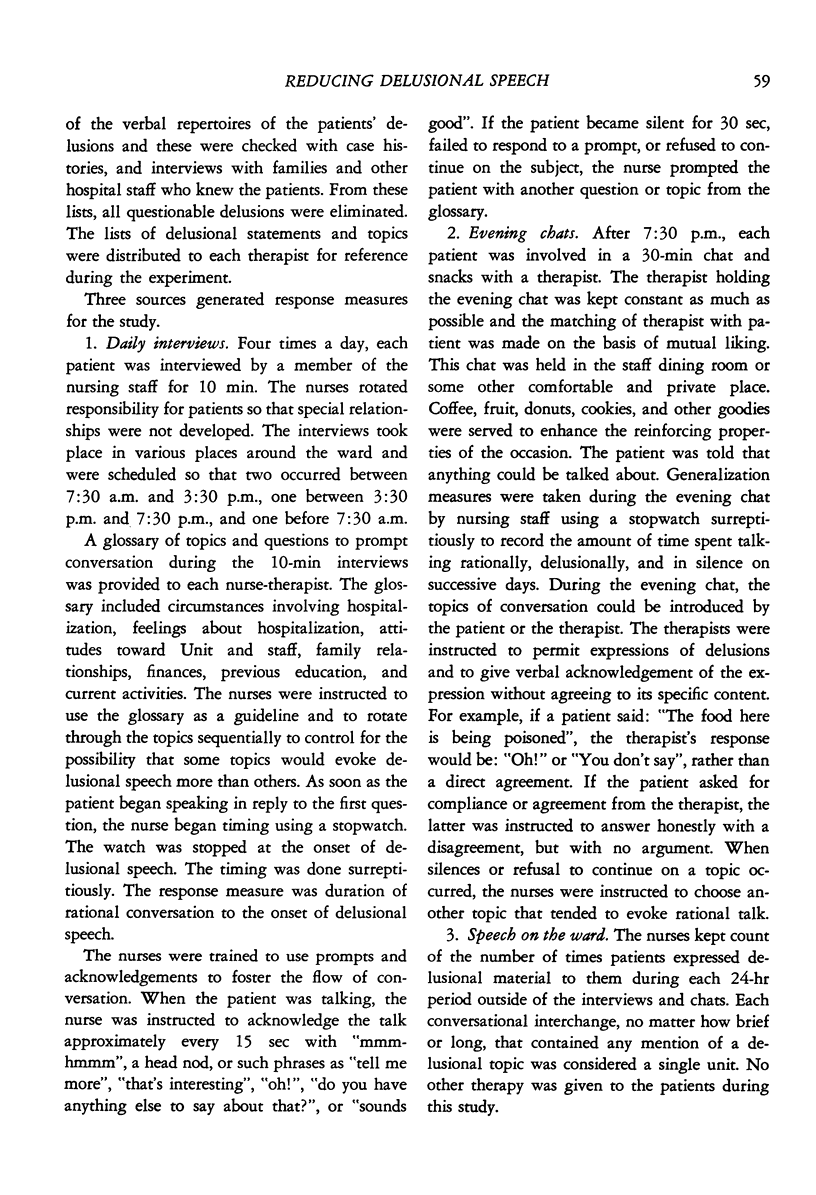
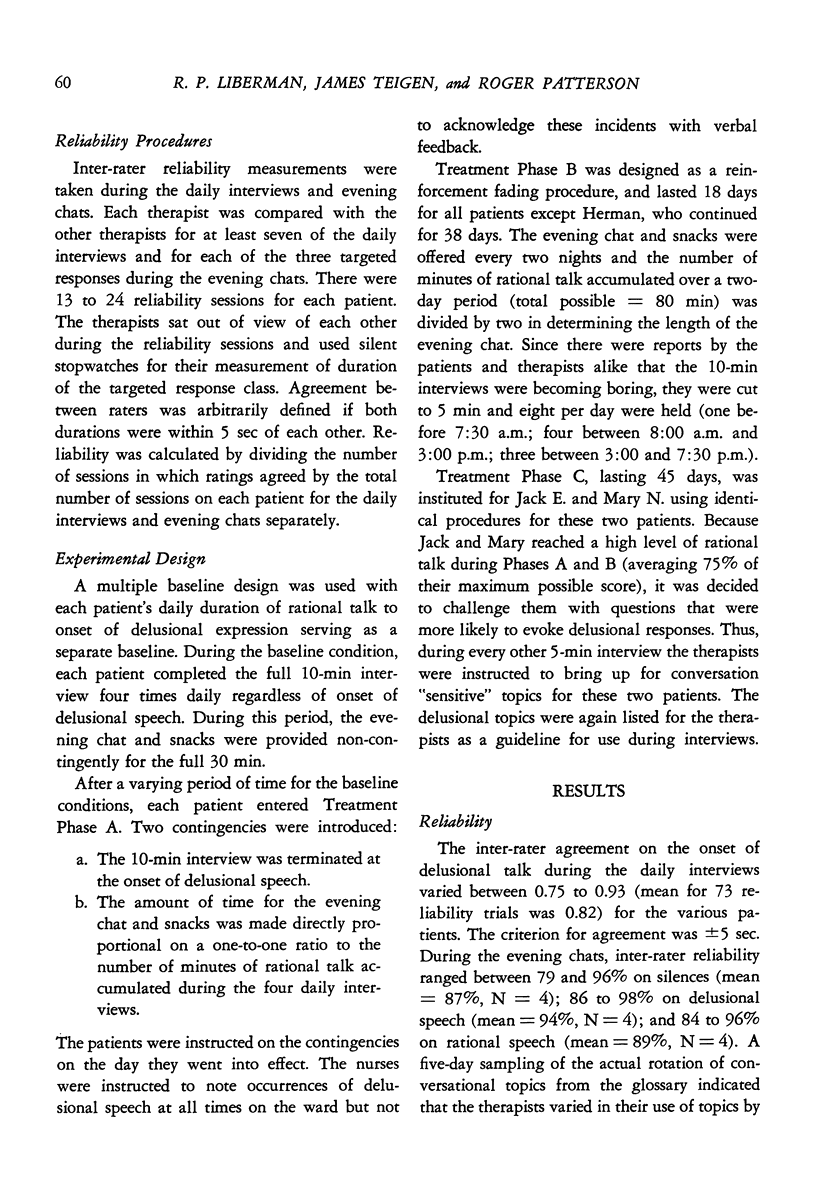
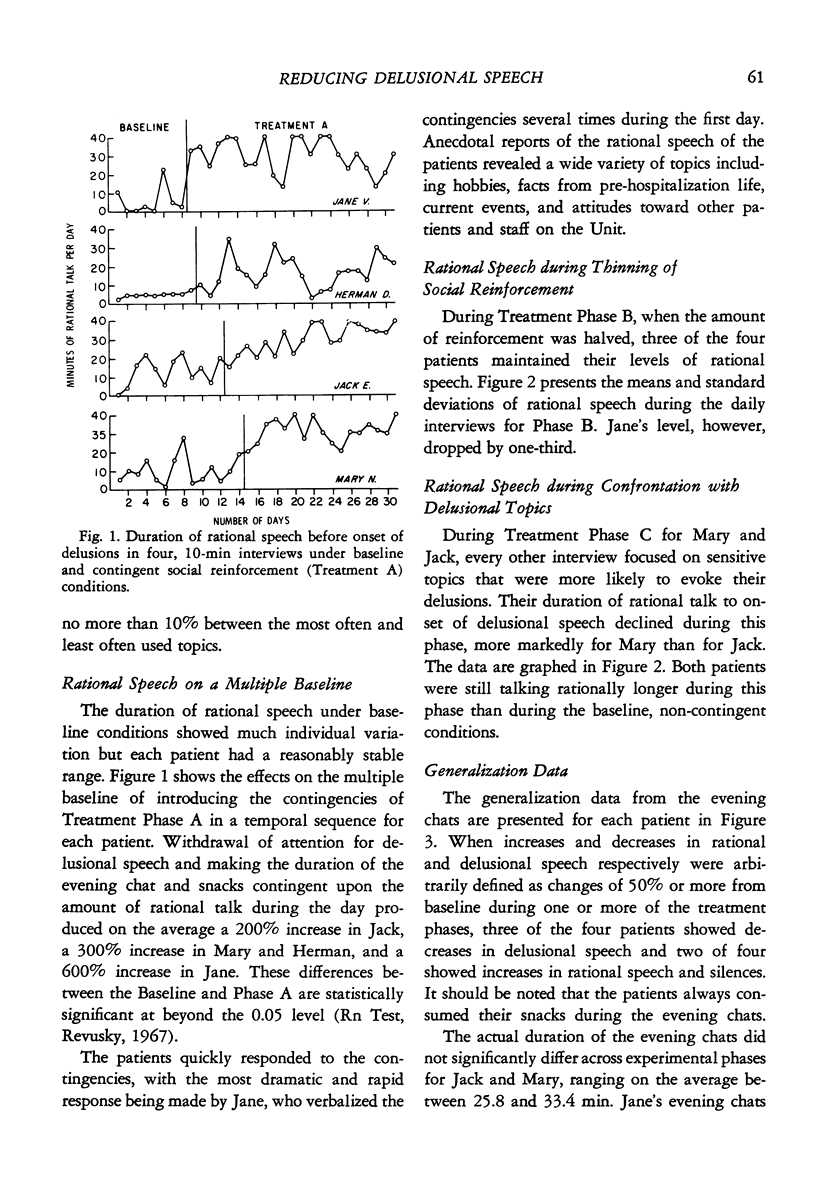
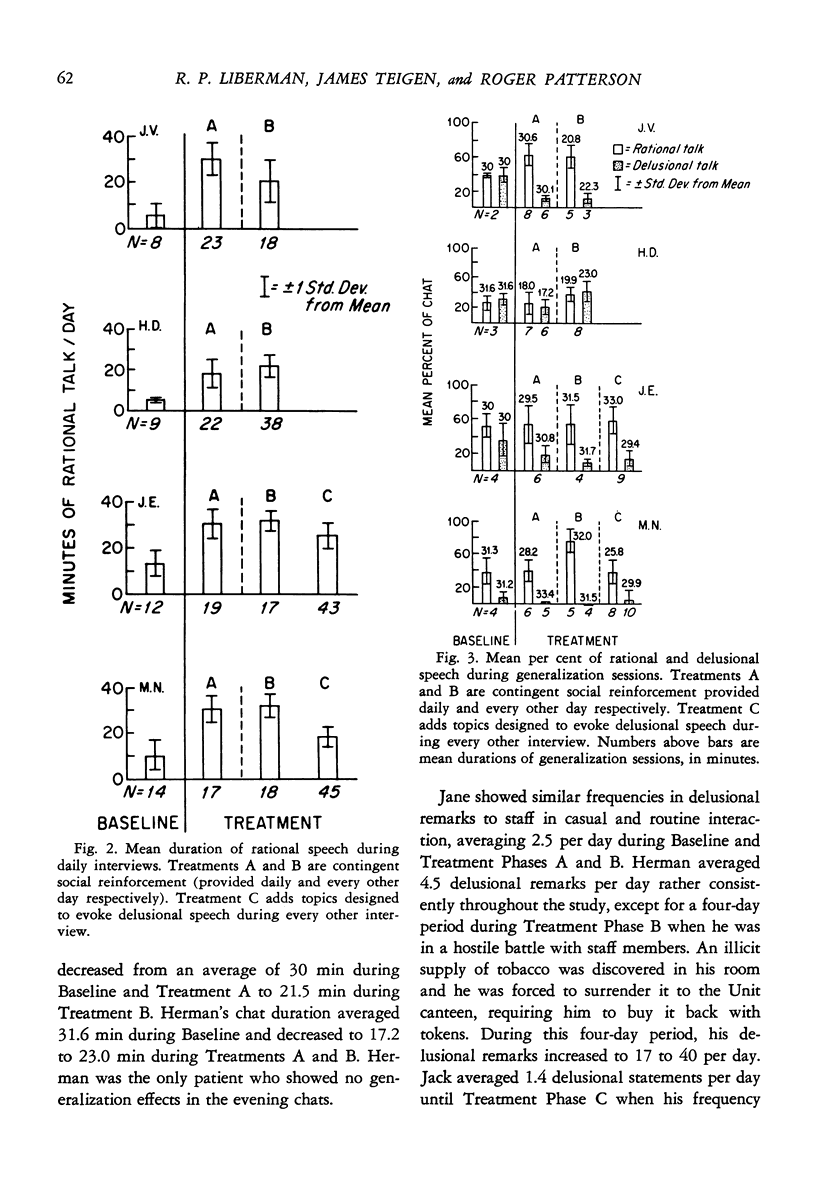
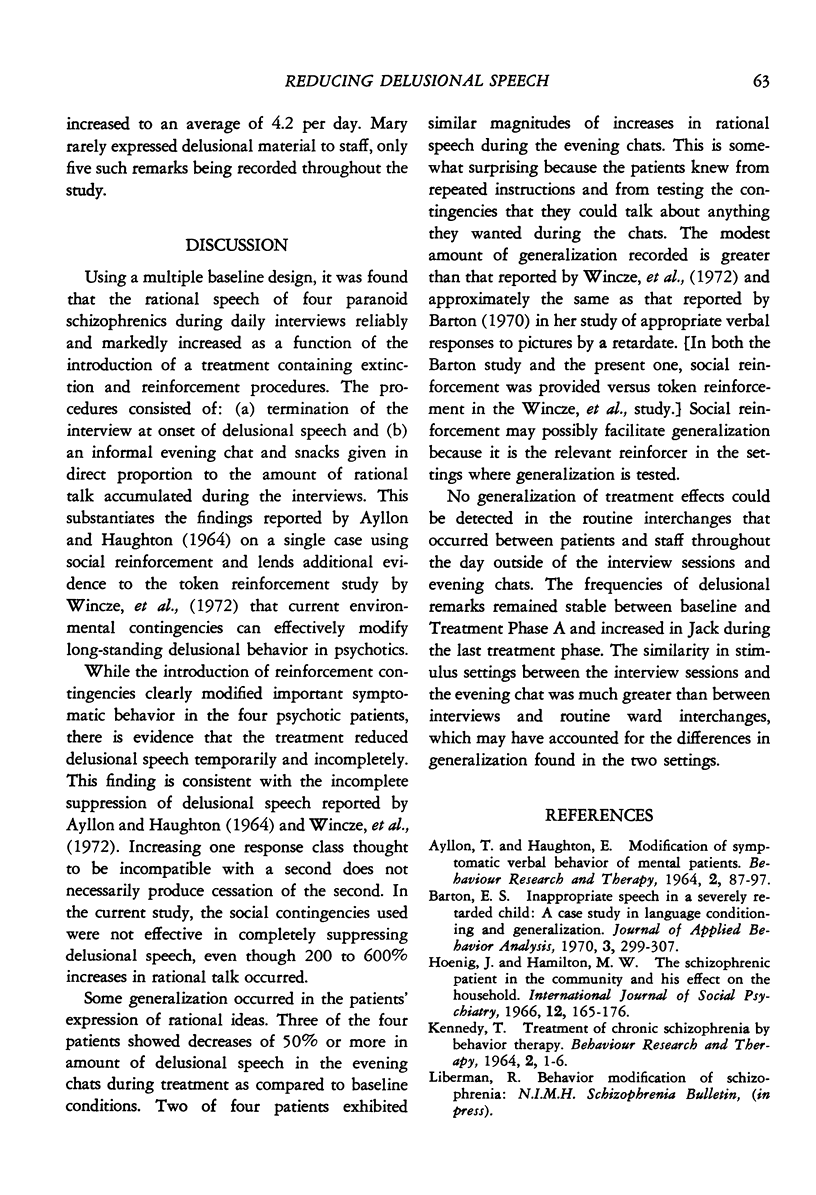
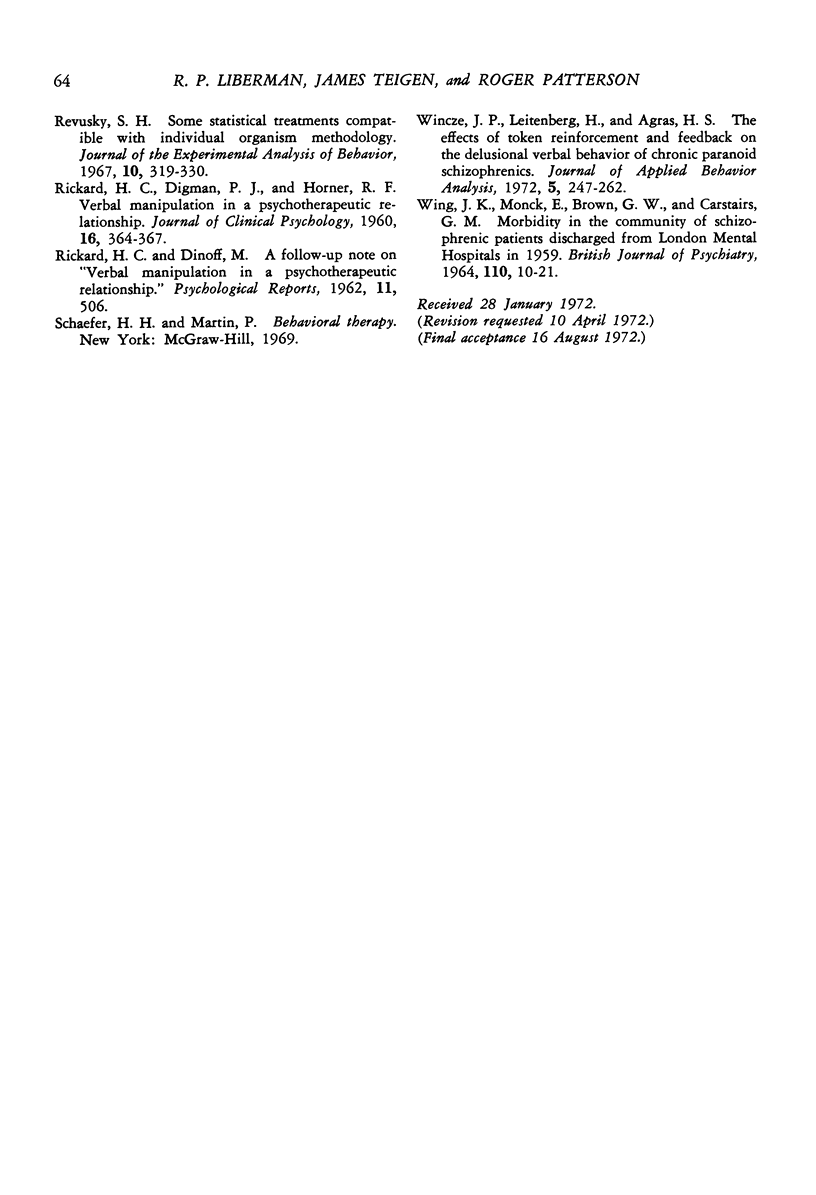
Selected References
These references are in PubMed. This may not be the complete list of references from this article.
- AYLLON T., HAUGHTON E. MODIFICATION OF SYMPTOMATIC VERBAL BEHAVIOUR OF MENTAL PATIENTS. Behav Res Ther. 1964 Sep;2:87–97. doi: 10.1016/0005-7967(64)90001-4. [DOI] [PubMed] [Google Scholar]
- Barton E. S. Inappropriate speech in a severely retarded child: a case study in language conditioning and generalization. J Appl Behav Anal. 1970 Winter;3(4):299–307. doi: 10.1901/jaba.1970.3-299. [DOI] [PMC free article] [PubMed] [Google Scholar]
- Hoenig J., Hamilton M. W. The schizophrenic patient in the community and his effect on the household. Int J Soc Psychiatry. 1966 Summer;12(3):165–176. doi: 10.1177/002076406601200301. [DOI] [PubMed] [Google Scholar]
- KENNEDY T. TREATMENT OF CHRONIC SCHIZOPHRENIA BY BEHAVIOUR THERAPY: CASE REPORTS. Behav Res Ther. 1964 May;2:1–6. doi: 10.1016/0005-7967(64)90047-6. [DOI] [PubMed] [Google Scholar]
- RICKARD H. C., DIGNAM P. J., HORNER R. F. Verbal manipulation in a psychotherapeutic relationship. J Clin Psychol. 1960 Oct;16:364–367. doi: 10.1002/1097-4679(196010)16:4<364::aid-jclp2270160404>3.0.co;2-2. [DOI] [PubMed] [Google Scholar]
- Revusky S. H. Some statistical treatments compatible with individual organism methodology. J Exp Anal Behav. 1967 May;10(3):319–330. doi: 10.1901/jeab.1967.10-319. [DOI] [PMC free article] [PubMed] [Google Scholar]
- WING J. K., MONCK E., BROWN G. W., CARSTAIRS G. M. MORBIDITY IN THE COMMUNITY OF SCHIZOPHRENIC PATIENTS DISCHARGED FROM LONDON MENTAL HOSPITALS IN 1959. Br J Psychiatry. 1964 Jan;110:10–21. doi: 10.1192/bjp.110.464.10. [DOI] [PubMed] [Google Scholar]
- Wincze J. P., Leitenberg H., Agras W. S. The effects of token reinforcement and feedback on the delusional verbal behavior of chronic paranoid schizophrenics. J Appl Behav Anal. 1972 Fall;5(3):247–262. doi: 10.1901/jaba.1972.5-247. [DOI] [PMC free article] [PubMed] [Google Scholar]


